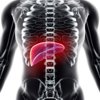Fritextsökning
Artiklar per år
Innehållstyper
-

“Conducting research at universities is becoming more and more like working at a research hotel”
The government wants Swedish research to focus on excellence and innovation, but can the two be combined? Life Science Sweden talks to Anna Falk, a professor at Lund University, about research policy, the constant hunt for funding in academia and what constitutes ‘fine research’.
-

Bayer has cut 1,500 roles – so far
German chemical and pharmaceutical group Bayer cut more than 1,500 roles in the first quarter alone– and most of them were management positions.
-

Carl Borrebaeck – professor and serial entrepreneur with a taste for speed
Award-winning cancer researcher, the founder of many listed companies, and constantly in the academic and commercial spotlight for decades. However, Carl Borrebaeck, Professor of Immunotechnology at Lund, is not yet satisfied. “We have a new, potentially
-

Vaccinpartners på väg att bli rivaler
Franska Valneva och danska Bavarian Nordic, två partners som distribuerat och marknadsfört varandras produkter sedan 2020, kommer snart att bli rivaler inom vaccin mot chikungunyafeber.
-

Ancient DNA provides new insights – “The immune system lost its job”
Ancient bone remains from our ancestors have provided new insights into the prevalence of multiple sclerosis. By looking back in time, researchers can provide a possible explanation for why the disease is more prevalent in northern Europe.
-

Uppgift: Sanofi planerar avknoppning av sina receptfria läkemedel
Den franska läkemedelsjätten Sanofi uppges ha bett ett antal banker att pitcha för att delta i att hantera företagets planerade avknoppning av sin OTC-verksamhet, enligt källor till Bloomberg News.
-

KI’s freezer fiasco investigated: A chain of failures
A chain of combined technical and organisational shortcomings caused the freezer breakdown at the Karolinska Institute during the Christmas holidays, destroying more than 47,000 samples. This was the conclusion of an internal investigation.
-

List: The coolest names in biotech
Hairy beasts, volcanic material and space strolling stand out on a US list of the best biotech company names, and on a list of the coolest names for pharmaceuticals, a Swedish, or at least Swedish-British, drug came out on top.
-

Framtida forskningsanläggningen ESS ska ge forskarna nya insikter på atomnivå
ESS i Lund ska bli ett viktigt verktyg för materialforskare i framtiden. Vi besöker anläggningen för att se hur långt de kommit.
-

Lista: Coolaste namnen inom biotech
Håriga bestar, vulkaniskt material och månpromenader sticker ut på en amerikansk lista över de bästa företagsnamnen inom biotech. Och på en annan lista, över de coolaste namnen på läkemedel, blev det svenskt, eller åtminstone svensk-brittiskt, i toppen.
-

Nocebo – the evil twin that makes you feel worse
The placebo effect is well known in healthcare, but not so its opposite: nocebo. “The effect is small, but it can have major repercussions,” says Uppsala researcher Charlotte Blease, co-author of a book on the phenomenon.
-

Study: Popular diabetes treatment is not associated with thyroid cancer
Concerns raised about an association between GLP-1 analogues, used to treat diabetes and obesity, and an increased risk of thyroid cancer are not supported by an extensive Scandinavian study.
-

Blodprov för Alzheimers får genombrottsstatus i USA
Ett blodprov som utvecklas av läkemedelsföretagen Roche och Eli Lilly som stöd vid diagnosticering av Alzheimers sjukdom har nu tilldelats genombrottsstatus i USA.
-

Ny chefredaktör på Läkartidningen
Åsa Uhlin har utsetts till ny chefredaktör på Läkartidningen efter avgående Pär Sandell.
-

Specific proposals and targets top the universities’ desired priorities
What are the universities’ expectations for the update of the national life science strategy? Life Science Sweden posed the question to representatives from Karolinska Institutet and Sahlgrenska Academy.
-

Första behandlingen mot vanlig leversjukdom godkänd i USA
Efter många år av utveckling har nu för första gången en behandling mot fettlever med leverskada godkänts av det amerikanska läkemedelsverket FDA.
-

KI-forskare fälls för oredlighet efter felaktiga bilder
Fyra forskare med koppling till Karolinska institutet fälls för oredlighet i forskning, enligt ett beslut från NPOF, Nämnden för prövning av oredlighet i forskning.
-

Venom from the deathstalker carries radiopharmaceuticals to the brain
In order to target cancerous brain tumours with radionuclides, the problematic blood-brain barrier must first be crossed. Life Science Sweden has visited a KI researcher who is trialling an unusual approach ‒ using scorpion venom.
-

Dödsskorpionens gift ska transportera radiofarmaka till hjärnan
För att komma åt cancertumörer i hjärnan med radionukleider måste man först ta sig igenom den svårforcerade blod-hjärnbarriären. Life Science Sweden har besökt en KI-forskare som prövar en alldeles egen metod – genom att ta hjälp av gift från skorpioner.
-

“What is important is to create an overview and understanding from different perspectives”
Scientist Jochen Schwenk analyses blood proteins using proteomics to improve our understanding of disease and health. This year, he is moderating the Lab & Diagnostics of the Future event.
-

From Valneva to the CEO position at NorthX – “I saw it as a great opportunity”
A new cell therapy for leukaemia, a vaccine in tablet form against cholera, and a proprietary mRNA line with the potential capacity to supply the entire Nordic region with vaccines during a future pandemic. These are some of the projects underway
-

Doktorand fick tuberkulos efter olycka på KI:s säkerhetslabb
En doktorand som arbetade med bakterier på Karolinska institutets säkerhetslaboratorium tros ha smittats med tuberkulos i samband med en olycka.
-

“Don’t postpone the transition to IVDR”
Operators who have not yet started to adapt to the requirements of the new EU IVDR regulation are running out of excuses. This is the opinion of Helena Dzojic, Head of Unit at the Swedish Medical Products Agency, who continues to persistently spread her
-

To build trust, one must be able to say “I don’t know” – whether human or AI
Will AI strengthen or break down trust? It depends on whether we can understand and accept its limitations, and our own, writes Sarah Lidé in a column.